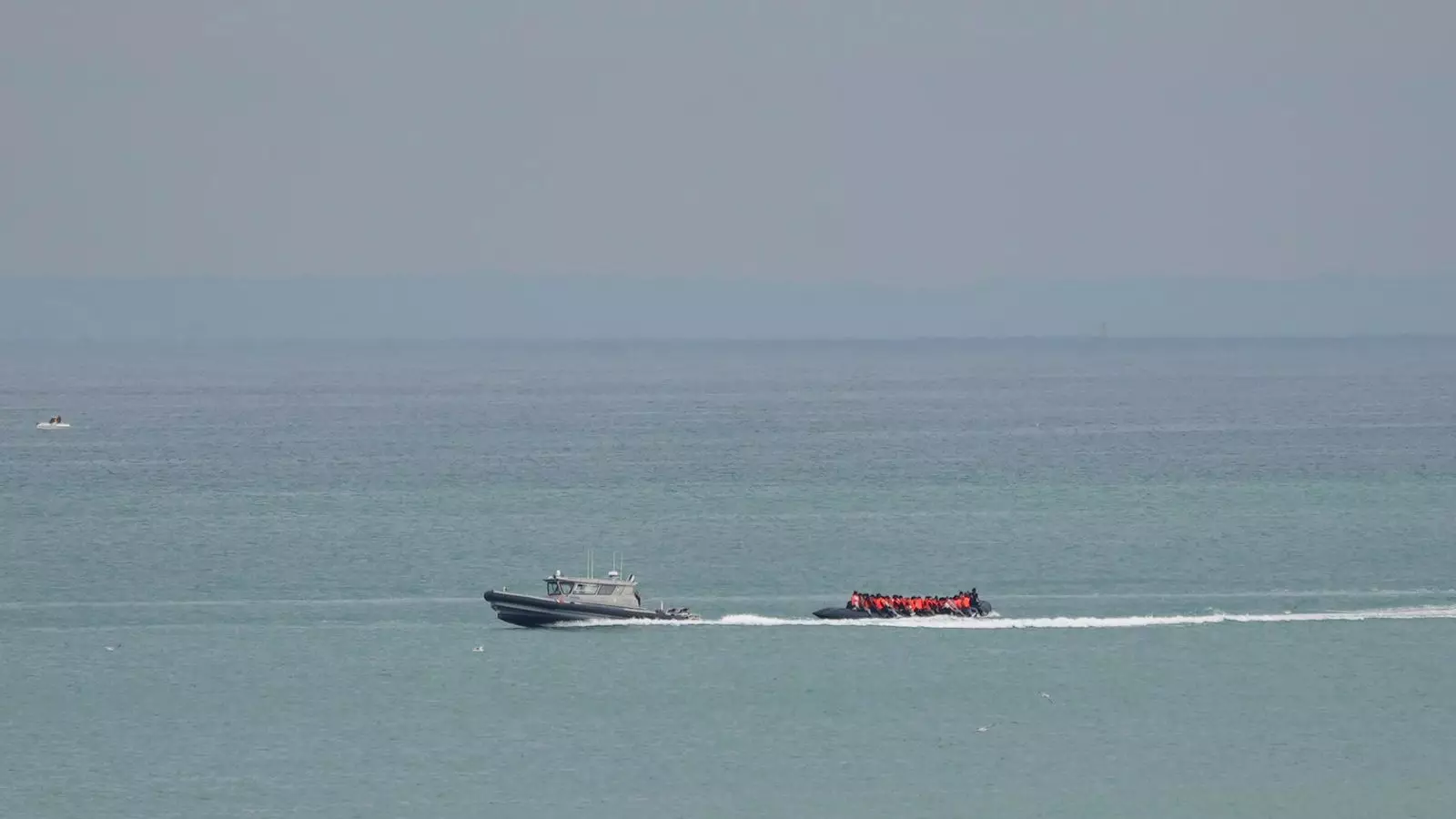In a devastating incident off the coast of France, at least eight migrants lost their lives while attempting to navigate the treacherous waters of the English Channel. This tragedy occurred near Ambleteuse in the Pas-de-Calais region, highlighting the ongoing perilous nature of such crossings. While 45 individuals were rescued following the incident, the stark reality remains that these dangerous crossings often result in loss of life, leaving families shattered and communities mourning. The regularity of these occurrences raises pressing questions about the systemic issues surrounding migration and the desperate conditions people face as they seek safety and stability.
This tragic event is only the latest in a series of deadly crossings that have been increasingly frequent this year. French authorities reported the rescue of approximately 200 individuals over a single weekend alone, indicative of the continuous human traffic attempting to cross the Channel. Among the rescued were 55 migrants found in a damaged boat near Le Portel and 61 others near Hardelot. Each of these rescues tells a story of desperation, revealing an uncomfortable truth: as demand for safe passage grows, so too does the risk involved in crossing these perilous waters.
The ongoing trend is alarming. Despite the rescue efforts, this year alone has seen more than 30 lives lost in Channel crossings, with the scale and severity of these incidents only escalating. Government figures indicate that over 21,000 individuals undertook perilous crossings between January and September, showcasing a significant increase in migration attempts. These numbers reflect not just a surge in attempts but also the increasing urgency faced by those fleeing their homelands for the promise of safety, potentially outlining the breadth of a humanitarian crisis.
The reaction from officials, including the UK’s Foreign Secretary David Lammy, responses to these tragedies often fall into a familiar pattern. Acknowledgments of the horror and sentiment towards the deceased have become almost routine. Lammy’s remarks about the inadequacy of the boats used by desperate migrants underline a grim reality: the vessels, often subpar and perilously unsafe, are the only option for many fleeing persecution. This situation is further compounded by the ongoing discussions of cracking down on people-smuggling networks. However, the focus on punitive measures without addressing the root causes is concerning and reflects an avoidance of deeper, systemic issues.
Amnesty International’s Steve Valdez-Symonds emphasized that the UK and French governments’ strategies—including their commitment to dismantling smuggling gangs—may inadvertently place migrants at even greater risk. As long as safe and regulated asylum routes remain elusive, vulnerable individuals are left with few options but to rely on dangerous and untrustworthy means to reach safety. Without a cooperative approach to establish safe pathways, the likelihood of future tragedies remains high.
It is apparent that the establishment of safe asylum routes is imperative. Rather than merely intensifying border security and punitive measures, there needs to be a shift towards compassion and understanding of the dire situations faced by those who undertake these crossings. Government officials from the UK and France must collaborate to create systems that allow for safe transit and responsible asylum procedures—solutions that can serve not only to preserve lives but to mitigate the desperation driving people towards perilous journeys.
As we reflect on the increasing fatalities in the English Channel, it is crucial for society to recognize the human element behind these statistics. Each number represents not just a life cut short, but dreams dashed and families left to grieve. To reduce the toll of these tragedies, we must advocate for policies that prioritize the dignity and safety of all individuals seeking refuge from violence, persecution, and hardship. Only then can we hope to turn the tide on this heartbreaking trend and prevent further loss of life in the attempt to seek safety.


Leave a Reply